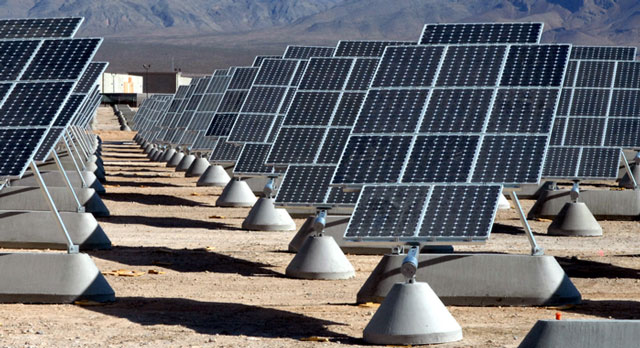
President Jacob Zuma, in his state-of-the-nation address on Thursday, appeared to put the country’s acclaimed Renewable Independent Power Producers’ Programme (REIPPP) back on track.
He announced that Eskom will sign the outstanding power purchase agreements (PPAs) “in line with the procured rounds”.
This appears to indicate that Eskom will be bound to the tariffs agreed upon when the IPPs were selected as preferred bidders. The utility has been delaying the conclusion of purchase agreements and lobbied to renegotiate the tariffs to 62c/kWh or less.
Moneyweb earlier reported that 37 IPPs who were subjected to the delays were not able to proceed towards financial close. They needed resolution of the impasse in this quarter to ensure their continued commitment to the R50bn investment and 2 000 permanent jobs their projects represent.
Zuma’s speech started more than an hour late after repeated spurious points of order by opposition parties that saw the Economic Freedom Fighters forcefully removed from the house and the Democratic Alliance walking out.
Zuma focused on radical socioeconomic transformation, which he said means “fundamental change in the structure, systems, institutions and patterns of ownership, management and control of the economy in favour of all South Africans, especially the poor, the majority of whom are African and female”.
He said ownership and top management in the economy are still heavily in favour of whites, with blacks underrepresented. “The skewed nature of ownership and leadership patterns need to be corrected. There can be no sustainability in any economy if the majority is excluded in this manner,” he said.
Zuma said the state will play its role in the economy to drive transformation through practical programmes and “utilise to the maximum, the strategic levers that are available to the state”.
These levers, he said, include legislation, regulations, licensing, budget and procurement as well as broad-based black economic empowerment charters.
The state’s R500bn annual procurement budget and R900bn infrastructure investment programme would be used for this purpose, he said.
As an example of the first of such programmes, Zuma referred to the regulations published in the Government Gazette on 20 January, which require the big contractors to subcontract 30% of their business to black-owned enterprises.
Zuma praised the competition authorities for fighting collusion and pointed out that anticompetitive conduct had been criminalised since May 2016. He promised further amendments to the Competition Act to address the concentration in many industries where a few players dominate and squeeze out newcomers.
He said the property sector is valued at R700 trillion, with the subsidised sector being valued at R1,5 trillion. Nevertheless, less than 5% of the sector is owned or managed by black people and Africans in particular, he said. He said a draft Property Practitioners Bill would be published for public comment with the aim of establishing a more inclusive, representative sector as part of radical economic transformation.

Black-owned small business will benefit from government’s R100m programme of capital investment and maintenance of harbours as well as opportunities in ICT, he said.
Zuma welcomed the recovery in commodity prices and urged parties to work together towards the new Mining Charter that he said is aimed at deracialising mining ownership.
“We will continue to pursue direct state involvement in mining. The Mining Company of South Africa Bill will be presented to cabinet and parliament during the year,” he said.
The Mineral and Petroleum Resources Development Amendment Bill, he said, was sent back to parliament due to a lack of proper public participation.
Zuma said he has decided to refer the Expropriation Bill back to parliament due to concern about its constitutionality as public participation might have been inadequate.
He appealed to claimants to accept land instead of monetary compensation.
“Over 90% of claims are currently settled through financial compensation, which does not help the process at all. It perpetuates dispossession. It also undermines economic empowerment,” he said.
Governement has already reprioritised R32bn in support of higher education, Zuma said.
- This article was originally published on Moneyweb and is used here with permission




